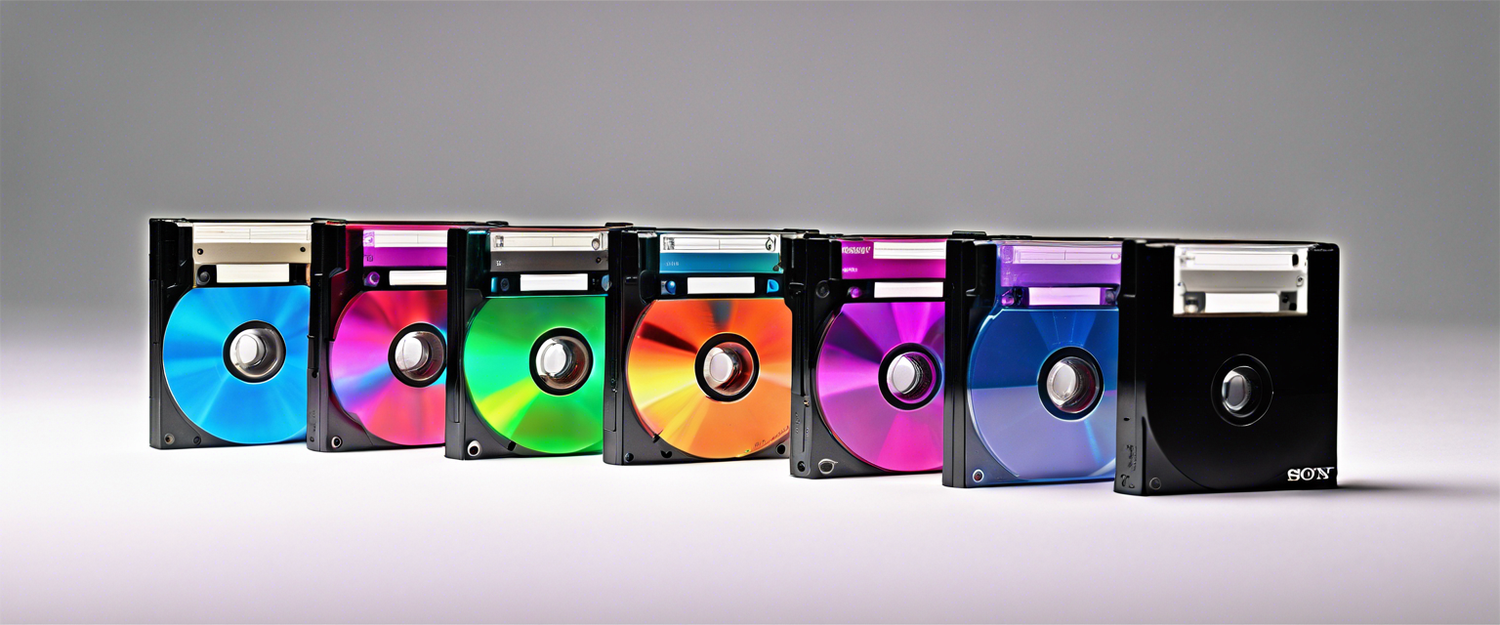History of Blank MiniDiscs by Sony: A Complete Guide
The MiniDisc, once hailed as a revolutionary portable audio format, continues to hold a special place in the hearts of audiophiles and collectors alike. Sony, the pioneering company behind this format, produced various blank MiniDiscs over the years. This article delves into the history of all the blank MiniDiscs that Sony ever made, highlighting the significance of each model and its relevance in today's audio landscape.
Introduction to MiniDiscs
Introduced in 1992, the MiniDisc format provided a compact and convenient way to store and play music. MiniDiscs offered many advantages over traditional cassette tapes and CDs, including portability, durability, and the ability to edit tracks easily. However, the rise of digital files and streaming services eventually led to the decline of the MiniDisc's popularity. Despite this, Sony's catalog of blank MiniDiscs is both fascinating and historically important.
The Evolution of Sony’s Blank MiniDiscs
Here’s a breakdown of the most notable blank MiniDiscs produced by Sony throughout the years:
- 1992 - The Original 74-Minute MiniDisc: The first iteration, which could hold 74 minutes of audio, quickly gained traction due to its high sound quality and durability.
- 1999 - 80-Minute MiniDiscs: Sony introduced 80-minute MiniDiscs, accommodating longer recordings, catering to the demands of audiophiles.
- 2001 - MiniDisc with Data Storage: Some MiniDiscs were capable of data storage for music files, making them versatile for various audio and data applications.
- 2004 - The Last Generation MiniDiscs: These reflected the waning popularity of the format, featuring improved metal-based discs for higher durability.
Notable Features of Sony MiniDiscs
Throughout its legacy, Sony's MiniDiscs boasted several standout features that appealed to users:
- Durability: MiniDiscs were less susceptible to scratches compared to CDs, making them ideal for portable use.
- Editing Capabilities: Users could easily edit their recordings, offering unprecedented flexibility.
- High-Quality Sound: The ATRAC (Adaptive Transform Acoustic Coding) compression method provided excellent sound quality.
The Legacy of Sony MiniDiscs
While the MiniDisc format faded from mainstream use, it never completely disappeared. Many audio enthusiasts continue to collect blank MiniDiscs and MiniDisc players, valuing their unique sound quality and nostalgic appeal. The evolution of audio technology may have moved on, but Sony's MiniDisc remains a key chapter in the story of personal audio.
Conclusion
This comprehensive exploration of Sony's blank MiniDiscs showcases the brand's innovation in the audio sector. Despite the competition posed by digital music formats, the MiniDisc format has left an indelible mark on audio history, representing a unique fusion of portability, quality, and technology. As we reminisce about the past, the legacy of the MiniDisc lives on in the hearts of many.
Further Reading
For those interested in learning more about the MiniDisc format and its history, we recommend a few additional resources:



Залишити коментар
Усі коментарі модеруються перед публікацією.
This site is protected by hCaptcha and the hCaptcha Privacy Policy and Terms of Service apply.